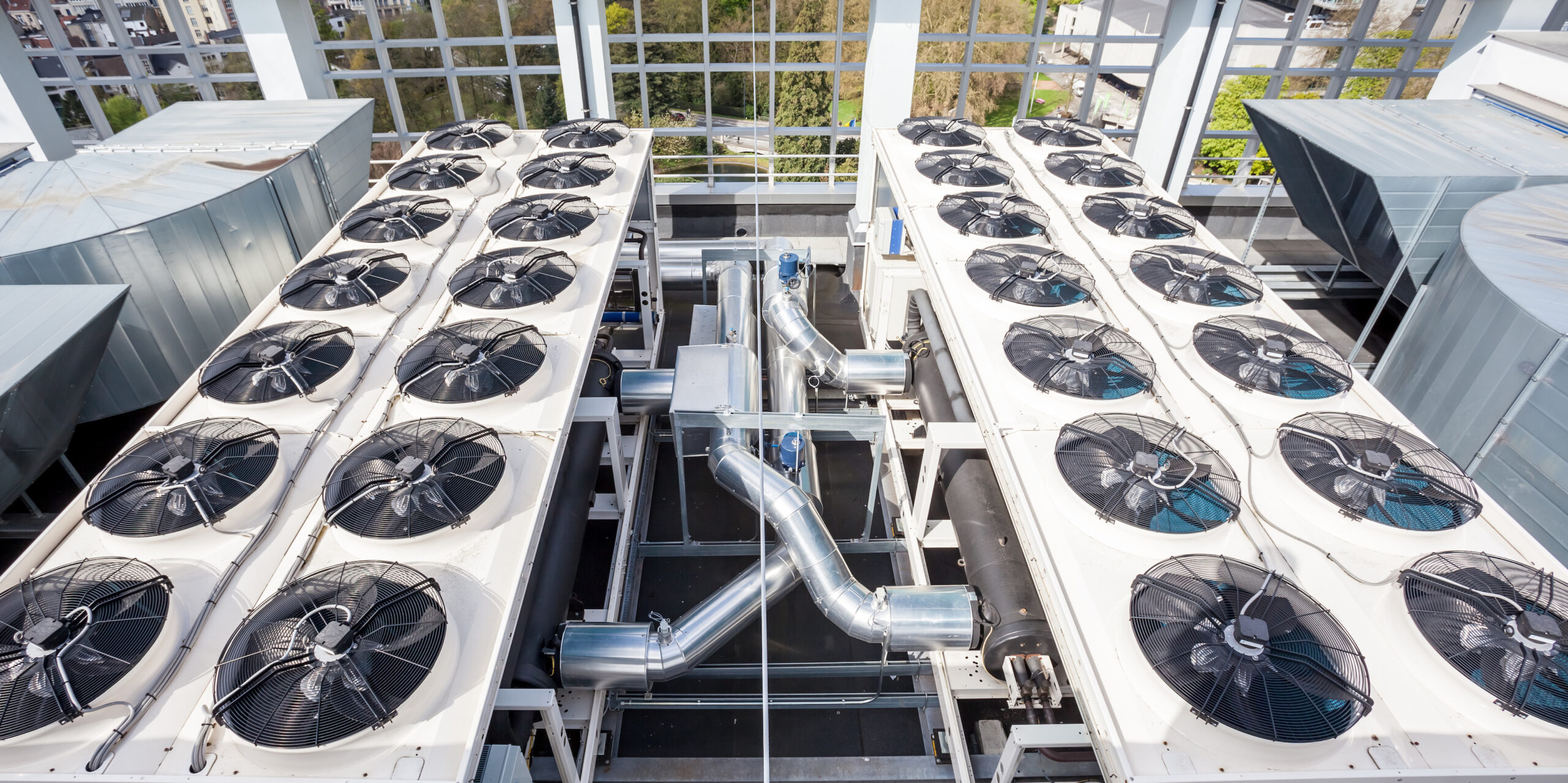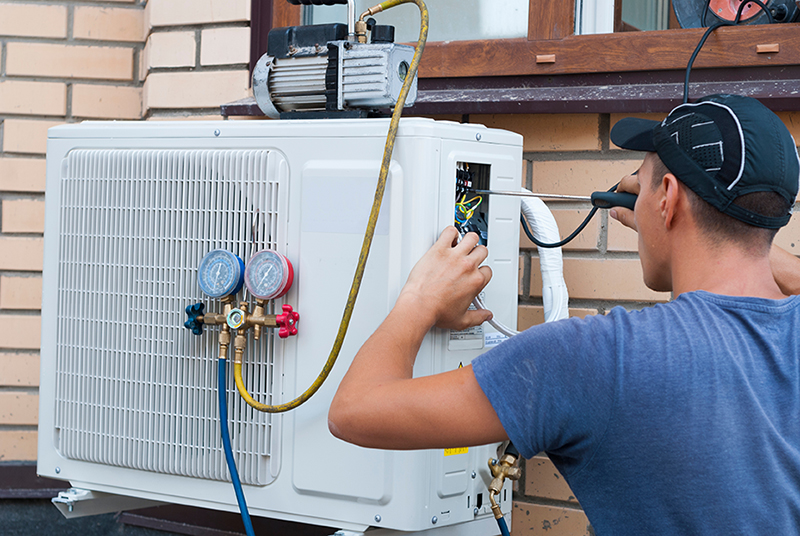Quick And Trusted Furnace Repair For Homes And Businesses
Quick And Trusted Furnace Repair For Homes And Businesses
Blog Article
Your Overview to Picking the Right HVAC System for Your Needs
Selecting a suitable Cooling and heating system is a vital choice that can considerably impact comfort and energy efficiency in your home. Furthermore, recognizing the different kinds of systems offered and their power scores can help assist your choice.
Comprehending HVAC System Types
When picking a HVAC system, it is vital to comprehend the different types offered to fulfill your details needs. The main categories of cooling and heating systems consist of central air conditioning systems, ductless mini-split systems, warmth pumps, and heating system systems.
Central air systems are developed to cool multiple spaces making use of ductwork to distribute conditioned air. They are suitable for larger homes needing consistent temperature control. Ductless mini-split systems, on the various other hand, provide versatility and effectiveness, as they enable for zoning capabilities, allowing specific area temperature level law without the need for ductwork.
Warm pumps operate by moving warm rather than producing it, making them an energy-efficient option for both home heating and air conditioning. Conversely, heater systems make use of combustion to produce heat, making use of either electrical energy, gas, or oil.
Each system has distinct benefits and considerations, including installment demands, upkeep, and total prices. Understanding these kinds will help house owners make educated choices based on their certain demands, climate, and budget plan restraints, inevitably ensuring ideal comfort and performance.
Assessing Power Efficiency
Power performance is an important element in the choice of an a/c system, as it directly affects both utility costs and environmental sustainability. When assessing energy efficiency, numerous metrics and ratings can help assist your choice. The Seasonal Power Efficiency Ratio (SEER) and the Home Heating Seasonal Performance Variable (HSPF) are important indicators for a/c systems, representing their efficiency over a regular cooling and heating season, respectively. Greater SEER and HSPF ratings show better power performance, bring about reduced power usage.
In addition, search for systems that have actually gained the power STAR tag. This certification signifies that the equipment meets strict energy efficiency standards established by the united state Epa. Consider the system's variable-speed innovation, which enables a lot more reliable operation by readjusting the result to match need, additionally boosting power cost savings.
Additionally, appropriate insulation and air duct sealing can dramatically influence the system's overall efficiency. In summary, choosing an energy-efficient a/c system not only lowers your energy costs yet additionally contributes to a more lasting environment, making it a crucial factor to consider in your acquiring procedure.
Assessing System Dimension
Picking the appropriate size for an a/c system is crucial to guaranteeing optimal performance and efficiency. A small system might have a hard time to maintain preferred temperature levels, resulting in raised damage, greater energy consumption, and reduced comfort. On the other hand, an extra-large system can result in fast biking, which not just causes inadequacies however likewise influences moisture control and air high quality.
To examine the excellent sizing, it is important to carry out a lots computation, which takes into consideration variables such as the square footage of the space, insulation levels, window dimensions, and neighborhood environment problems - air duct cleaning coquitlam. This calculation helps identify the British Thermal Devices (BTU) needed for heating & cooling. Furthermore, it is essential to make up particular needs, such as the variety of owners and the existence of heat-generating home appliances

Installment Costs and Budget Plan
A comprehensive understanding of setup prices is necessary for house owners and companies considering a new cooling and heating system. The total cost of installation can differ commonly based upon a number of elements, consisting of the type of system, the intricacy of setup, and the place of the building. Generally, setup expenses can vary from $3,000 to $10,000, depending upon the system's size and efficiency.
When budgeting for a HVAC system, it is vital to consider not just the initial installment expenses however likewise any kind of extra costs that may develop, such as ductwork adjustments, electric upgrades, or licenses. Furthermore, it is advisable to get several quotes from qualified HVAC professionals to make sure affordable pricing.
Home owners must likewise factor in the potential lasting savings associated with energy-efficient systems. While the in advance costs may be higher, energy-efficient models can cause substantial cost savings on energy bills in time.

Upkeep and Longevity Considerations

Correct upkeep includes regular assessments, filter replacements, and cleansing of ducts and coils (furnace installation). Overlooking these tasks can bring about decreased effectiveness, boosted energy expenses, and early system failure. Home owners need to also think about the schedule of service contracts, which often give scheduled upkeep and concern solution, guaranteeing that the system continues to be in peak condition
Durability differs by system type; for circumstances, properly maintained central air systems can last 15 to 20 years, while heatpump may have a life-span of 10 to 15 years. Picking a system with a strong credibility for reliability, in addition to purchasing routine upkeep, can substantially boost the system's resilience. Furthermore, selecting higher-efficiency versions might cause long-lasting financial savings on power expenses, stabilizing the preliminary investment with time.
Verdict
To conclude, selecting an ideal heating and cooling system requires careful factor to consider of various factors, consisting of system kinds, energy efficiency, and dimension. Evaluating setup costs and lasting maintenance needs is crucial for making sure optimal performance and cost-effectiveness. Engaging with cooling and heating experts can provide valuable insights and tailored suggestions that straighten with specific heating and cooling down demands. Ultimately, a knowledgeable choice will improve convenience and performance in residential atmospheres while optimizing power savings.
Selecting an appropriate A/c system is an important choice that can significantly influence convenience and power effectiveness in your home.Energy performance is an essential element in the option of a Cooling and heating system, as it directly influences both energy costs and ecological sustainability. The Seasonal Energy Effectiveness Proportion (SEER) and the Home Heating Seasonal Performance Variable (HSPF) are important indications for air conditioning systems, representing their effectiveness over a regular air conditioning and home heating period, respectively. Choosing a system with a strong online reputation for reliability, along with spending in Our site regular maintenance, can This Site dramatically enhance the system's sturdiness.In final thought, selecting an ideal Heating and cooling system necessitates mindful consideration of various factors, consisting of system kinds, power performance, and size.
Report this page